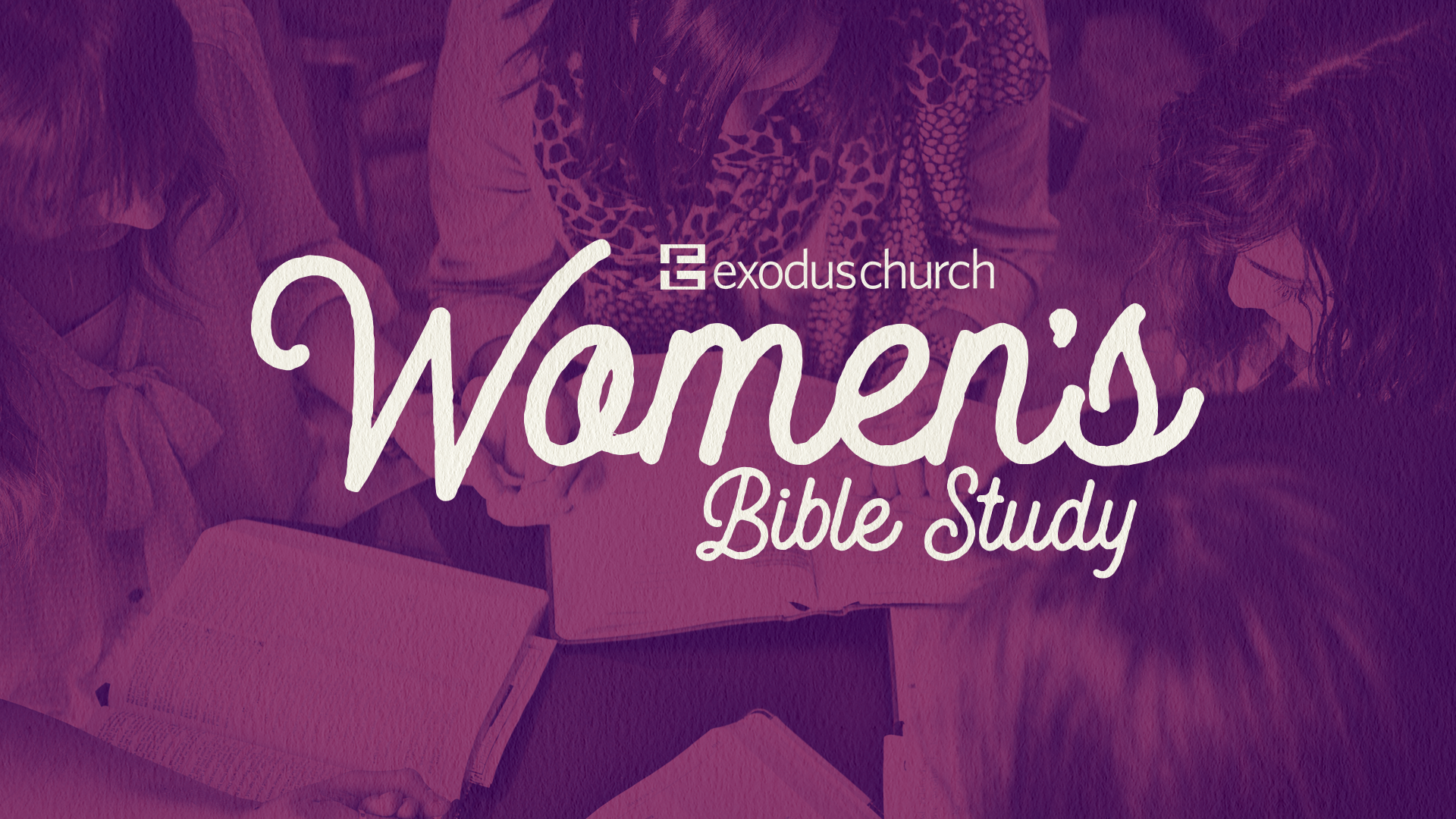Paul continues with some additional qualifications for specific types of deacons in 1Timothy 3:11-13. Before we move to those, it would be appropriate to discuss the question of women as deacons in the church.
At Exodus, we hold and practice a complementarian view of men and women. In other words, we teach from the Bible that God made men and women equal in essence and person. From a scriptural perspective, men are not better than women nor are women better than men. We also understand from the Bible that God created men and women differently. He created them uniquely for different roles in the home and in the church that are designed to complement one another. In the home the husband is to sacrificially lead while his wife faithfully supports his leadership with her gifts and strengths so that the family might thrive.
In the church, because Scripture is so clear on this point, we firmly believe that the office of elder/pastor is only granted to biblically qualified, faithful men. There is no passage in the Bible that can be understood to allow women to be elders or pastors. However, regarding the question of who can be a deacon, the preponderance of passages relating to this question at a minimum open this up for conversation (Romans 16:1, 1 Timothy 3:11).
The notion of women serving as deacons is a hotly debated matter even within biblically faithful churches. There are many biblically faithful churches that decide to have women serve as deacons and others that do not. It is important to note however that even in most churches that decide not to assign the official title of deacon, women are almost always still serving in leadership in many important areas (e.g VBS Director). The irony in the debate is that in the end, these women ultimately serve in deacon roles, but they simply do not bear the title.
There are many biblically faithful churches that decide to have women serve as deacons and others that do not. Biblically faithful men come down on both sides of this issue.
While we recognize that the Bible does not answer this question as clearly as many others, the elders are persuaded from our study of the Bible, as well as building on the study of many respected historic and contemporary theologians, that women are indeed allowed to serve Jesus as deacons in the life of the local church. The principle reasons are as follows:
- Grammar
- “Their wives…”—In 1 Timothy 3:11, the verse literally reads “Women [γυναῖκας], likewise must be dignified.” Also, there is no possessive pronoun (their) referring to these women. Additionally, there is a specific Greek word for wives, but this word is not used. The females mentioned are simply “women”. Though not its principal meaning, at times this word γυναῖκας can also mean or imply “wives”. However, there really is no justification for it in this context, which may be why scholars felt they had to insert the word “their” to achieve that meaning.
- The absence of requirements for elder’s wives—We are also persuaded that this cannot logically refer to deacon’s wives because there is no parallel mention of requirements for elder’s wives. It would seem that if there were requirements for the wives of those deacons actually serving the elders, then there would also be requirements for the wives of those who would lead the deacons—the elders themselves. We realize that this is an argument from silence, but it is a strong one.
- “Likewise…”—In v. 8, this word is used to begin the section on deacons following the passage about elders. Paul is setting aside a group called to a particular role. The same construction is used in v. 11 to refer to the women mentioned in the verse. At the very least, Paul is setting up some role for women in the church regardless of whether or not it is specifically for female deacons.
- Authority-—1 Timothy 2, vv. 8-15 are quite clear that women are not to exercise authority over men in the church. So then, how can women serve as deacons? Our understanding of this passage is that the particular authority to which this passage alludes lies specifically with the church elders as they submit to Jesus. The deacons serve under this elder authority, but they do not themselves possess that same authority referenced in 1 Timothy 2:8-15. As such there is no conflict between 1 Timothy 2:8-15 and 1 Timothy 3:8-12. Female deacons (and male deacons for that matter) simply do not possess elder authority. Deacons serve and execute their assigned roles (including delegated leadership) under elder authority.
- Wisdom—While we hold that the Bible is the final authority against which all other sources of wisdom and guidance are measured, it is not the only source of guidance in our day-to-day activities. The Bible simply does not speak in detail on every matter under the sun. God intends for us to use biblically informed wisdom and common sense to make many mundane and some not-so-mundane decisions in those places where he is silent or has not provided detailed direction. One such way that we seek guidance when God expects us to use wisdom is by looking to our respected contemporaries as well as our forefathers in the faith
- The early church—In this case, we see that the earliest churches had female deacons with church fathers even referring to them specifically in 1 Timothy 3:11 and Romans 16:1. There are also mentions of female deacons serving the church in extra-biblical sources as early as the 2nd century.
- Contemporaries—As we researched this issue, we noted that the following widely known and respected theologian pastors are just a few examples of the many that have female deacons (or deaconesses as they are sometimes called) in their own churches:
- John Piper-—Bethlehem Baptist Church
- John MacArthur—Grace Community Church
- Mark Dever-—Capitol Hill Baptist Church
- Matt Chandler—The Village Church
These are just a sampling of those whose positions we reviewed in our study.
As mentioned already, the Bible is always our final authority and standard, but God gave us the church as a gift to all believers and for “…iron to sharpen iron…” (Proverbs 27:17). To ignore this source of wisdom is to ignore one of God’s precious gifts.
As we have studied the Bible, looked at other research and prayed fervently about this decision, we are aware that our context and the church culture in it have a certain perception of churches with female deacons, and not always positive. For some, adopting a position that allows for female deacons is the first sign of a liberalism that would reject biblical authority in favor of cultural values[1]. We seek to assure you in any way we can that we are not moving toward a lower view of the Scriptures. To the contrary, we are seeking to submit to them more fully and to avoid the very trap of not challenging existing traditions simply because our parents’ churches did it a certain way. In short, we seek to be Bereans[2], never settling for a tradition when we discover that Scripture contradicts that tradition.
We are also aware that many of us have attended churches that maintain an unbiblical leadership structure. A good example of this is when there are no elders and deacons effectively serve as elders. In this model, a woman should not be a “deacon” because these deacons are really serving as elders/pastors (which the Bible restricts to men)[3].
To be very clear, we would affirm that biblically qualified women can serve Jesus in many ways at Exodus. Some of those would include serving as deacon, praying or reading Scripture during a worship gathering, sharing testimony, teaching other women in gender-specific studies, teaching mixed gender studies in a way that does not usurp the headship of their husbands or be in conflict with 1 Timothy 2, providing counsel to women (Titus 2) and serving in other ways that are not in conflict with 1 Timothy 2. However, women will not serve as elders or pastors or preach during our worship gatherings at Exodus Church.[4]
At Exodus we always seek to structure leadership in a way that reflects what the Bible teaches. Since our desire is to be a biblically faithful church, we want to submit to the Bible more and more fully as we grow in Christ’s likeness. To that end, it is the conviction of your elders that qualified women can serve Jesus as deacons at Exodus Church. [5]
Additional Qualifications
For women deacons—1 Timothy 3:11
In addition to the other qualifications for deacons in vv. 8-10, the following qualifications are unique to the women who serve as deacons:
- Dignified—These must be women who are worthy of respect and who live lives worthy of imitation.
- Not slanderers—These must be women who control their tongues. This can mean sharing appropriate information in appropriate ways. It also governs the way in which women speak to others.
- Sober-minded—These must be women who are self controlled in their minds and hearts. They cannot be women who are excessively controlled by their emotions. They must be temperate.
- Faithful—They must be trustworthy and reliable. If they are going to serve the elders of the church, we all must be able to count on them to get the job done.
[1] Incidentally, the cultural argument can go both ways. A church could affirm women deacons in order to accommodate to the secular culture or feminism. However, a church could reject women deacons not as a statement of biblical fidelity, but to accommodate the religious culture that wrongly understands the issue. Both are reactions to the culture. Tim Keller’s article says this very well, “If [our denomination] is driven either by reaction to or adaptation to the culture, it is being controlled by the culture instead of the Word.” Our desire is to be biblically faithful regardless of the reaction of the secular or religious culture.
[2] Now these Jews were more noble than those in Thessalonica; they received the word with all eagerness, examining the Scriptures daily to see if these things were so (Acts 17:11).
[3] We found Thabiti Anyabwile’s article on this to be very helpful. He writes, “As I recounted earlier, I’ve been a member at churches that do not have elders but are governed by a group of deacons. If the church does not have elders and deacons perform the teaching and oversight responsibilities biblically belonging to elders, then women should not serve as deacons. I’m a complementarian, so I believe the basic pattern of qualified male leadership in the church should be maintained in joyful obedience to the Lord. But having said that, the more important “fix” to such a situation is not to restrict women from serving in what may be a permissible area of service in the church, but to conform the church itself to the New Testament pattern of governance. We shouldn’t restrict women in an effort to maintain irregular governance; we should conform our governance of the church to the word of God and deploy women to serve wherever and whenever appropriate.”
[4] For more on this, see “Women’s Responsibility and Authority at The Village Church”
[5] Some of you may wonder about our connection to the Southern Baptist Convention and our alignment with the Baptist Faith & Message 2000. Our position on deacons does not veer from the position of the BFM 2000. In this document, the role of pastor is assigned to men only, while deacons remains unspecified. This leaves room for churches that hold both positions to serve Jesus together.
To read the previous post in this series, click here.



